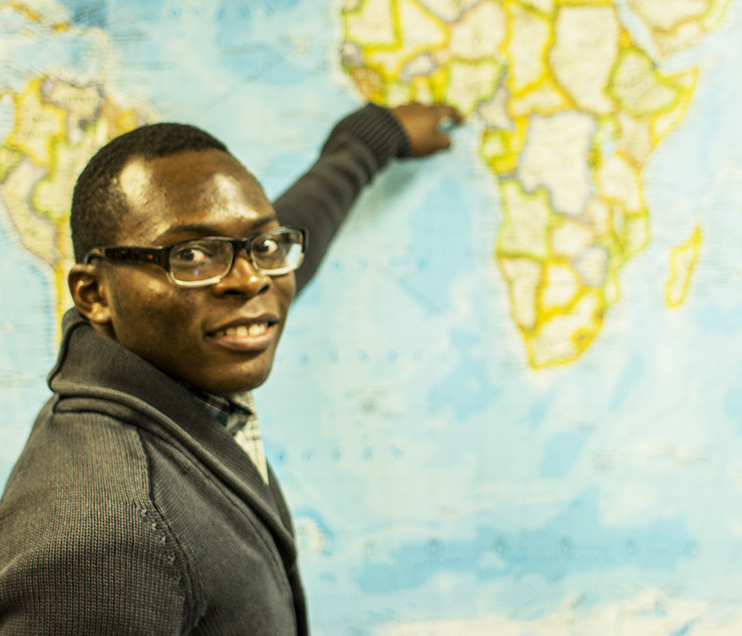Nigerian student always dreamed of U.S.


Isuamfon Williams said he moved to the U.S. when he was almost 16.
“I came from the southern part of Nigeria; Akwa Ibom,” Williams said.
He said of the state, “It’s not that densely populated. It’s just a normal area.”
Before he moved to the U.S., Williams said, he had a grand but obscured vision of what life in America might be like.
“I thought it was heaven on Earth.”
Williams said American culture had in some ways permeated Nigeria during his youth but he knew so little of what was real.
He said after moving to the U.S. he was confused to see a near geriatric Arnold Schwarzenegger on television. He had recently seen the Schwarzenegger movie “Terminator,” a new release to Nigeria just months before. It was then, he said, that he realized what he knew of American culture was vastly outdated and off base.
Williams said, as a child, he would discuss America happily with his friends, imagining what it would be like.
“We thought there’d be witches and wizards, and they could use your brain to make technology,” he said.
“We just wanted to be there. I just knew that America would be the best place ever.”
Even at a young age, he said, he was longing for the opportunities that a life in the U.S. might afford him.
“In Nigeria, you have to go to private school to get an education,” he said. “Private school is very expensive.”
“Here … you have the opportunity to apply for a Pell Grant or a loan,” Williams said. “That helps me to pay for tuition. With that, I’ll be able to help society.
“That’s a huge thing and I very much appreciate that. There’s a lot more opportunity in the U.S.”
Upon arriving in the States, Williams said, he was astonished by the presence of high-tech devices everywhere.
“Everywhere is technology,” he said.
“You don’t really have to do things manually. Everything is computerized. That touches me.”
Williams said his home Akwa Ibom is rich in oil. The oil reserves of Nigeria prop up the nation’s economy. He said he sees undeniable similarities between Oklahoma and his former home state in this way. There were oil refineries where he grew up and drilling rigs dotted the landscape as they do here, he said.
Even with the oil richness of Nigeria, Williams said, unbridled corruption withholds opportunities from the nation’s people.
He said the Nigerian government has sometimes encouraged the siphoning of oil from broken pipelines to sell on the black market.
It inspires theft and bribery among people kept desperate by lack of resources in spite of their strong economy.
“Some people die,” he said. “There’s no health care,” he said. “Sometimes there’s no electricity. It is not free. It is not fair.”
Williams said it’s his opinion that corruption in Nigeria has contributed the most to the suffering of its people.
He spoke of manipulative campaigns and false promises, bought-off officials and government agencies that operate without oversight or accountability. Although he’s only 18 and he’s far removed from his home country, Williams said he is determined to help.
“That’s why I’m studying petroleum engineering,” he said.
Williams said he hopes to put the knowledge he gains here to use back home. He said he intends to improve Nigeria’s mainstay industry in whatever way he can. Through that endeavor, he hopes to alleviate some of the suffering of people there.
“In my state, there’s resources that I could use for helping people.
Williams said he feels at home here.
“I have assimilated into American culture so much that I don’t even really like traditional Nigerian food anymore.”
Even so, he said, his 10-year plan includes returning to Akwa Ibom to make whatever difference he can there.
Until then, he said he encourages others to take their education seriously.
“If you see the opportunity, take the opportunity with both hands and then strive for it. Then you can succeed.”